The CEER Conference provides insight to the future of report cards
Heath Kelsey ·Alex Fries and I had the chance to represent UMCES at the Conference on Ecosystem and Ecological Restoration (CEER) on the New Orleans riverfront from July 28 to August 1, 2014. I presented on our
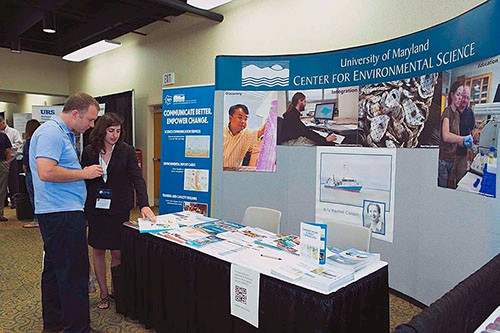
CEER Conference a good venue for the Mississippi Report Card
There could not have been a more appropriate location to talk about a report card for the Mississippi River than New Orleans, Louisiana this July. Much of the conference focus was in Mississippi River restoration, management, ecology, and history, from the upper Missouri to the Mississippi River Delta and the Gulf of Mexico. Restoring Mississippi River environmental flows, fish passage, wetland, terrestrial, and coastal habitat, urban systems, and ecosystem services were all topics discussed, which are relevant to the Integrated River Basin Management approach that forms the basis of America’s Watershed Initiative and the report card evaluation scheme.
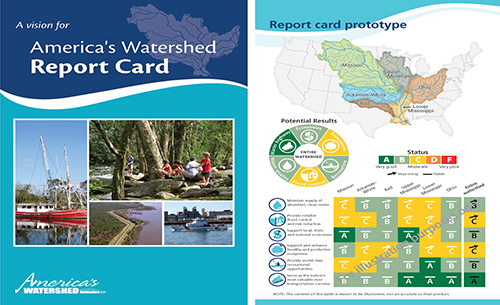
Report Card approach is applicable worldwide
Many talks at the conference also reported on management in other worldwide river and coastal systems, including several in Europe, Southeast Asia, the Pacific, Australia, and the Middle East. I couldn’t attend all of them, but at the talks I attended, I was struck by how the approach to the Mississippi River Report Card project could be effective for any large system.
Many of the America’s Watershed Initiative six goals would likely resonate with stakeholders at river systems anywhere, and goals could be easily tailored to a particular system. Water supply, flood control, economic growth, and transportation are nearly universal services that we expect from large river systems worldwide. Adding goals for food supply from fisheries and agriculture, ecology and biodiversity, natural resources, and energy to the list would create a comprehensive set of management goals applicable for most river systems.

A healthy, natural river ecosystem can help provide services to support these goals. Strong river baseflow can provide adequate water quantity for transportation and water supply, and healthy environmental flows can provide the ecological functions that support water quality, agriculture, fisheries, sediment transport, and wetland habitats. Wise and informed management is required to support these services, while also allowing energy production, resource use, transportation, and flood protection.
The ability to evaluate and track changes in the status of achieving these goals is key to our ability to adaptively manage them. Clearly communicating the results in one document creates the opportunity for an open conversation about the interconnectedness of these goals, and increases the ability to create a holistic management strategy. The report card approach accomplishes these assessment and communication objectives efficiently, by clearly communicating status of achieving each goal to decision-makers and the public. An educated decision-maker can make informed choices, and an educated public can apply pressure to allow these decisions to be implemented.
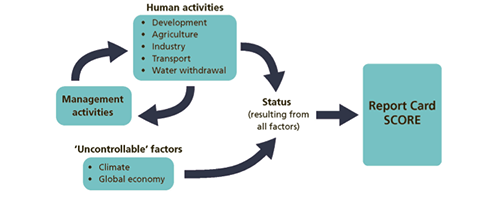
The process for report card development also is broadly applicable, and provides a useful community and stakeholder engagement mechanism. Our report card process engages a broad spectrum of stakeholders in the development of indicators, measures, data sources, and reporting methods. Engaging these broad and diverse interests in a common process in a workshop setting creates an opportunity for dialog that our partners have universally described as exceedingly rare, but absolutely necessary for developing shared understanding and progress to achieve common objectives.
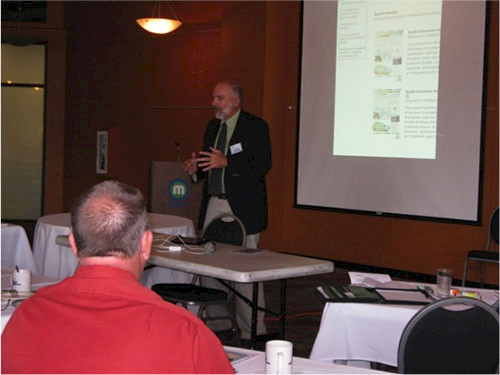
About the author
Heath Kelsey
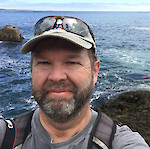
Heath Kelsey has been with IAN since 2009, as a Science Integrator, Program Manager, and as Director since 2019. His work focuses on helping communities become more engaged in socio-environmental decision making. He has over 10-years of experience in stakeholder engagement, environmental and public health assessment, indicator development, and science communication. He has led numerous ecosystem health and socio-environmental health report card projects globally, in Australia, India, the South Pacific, Africa, and throughout the US. Dr. Kelsey received his MSPH (2000) and PhD (2006) from The University of South Carolina Arnold School of Public Health. He is a graduate of St Mary’s College of Maryland (1988). He was also a Peace Corps Volunteer in Papua New Guinea from 1995-1998.